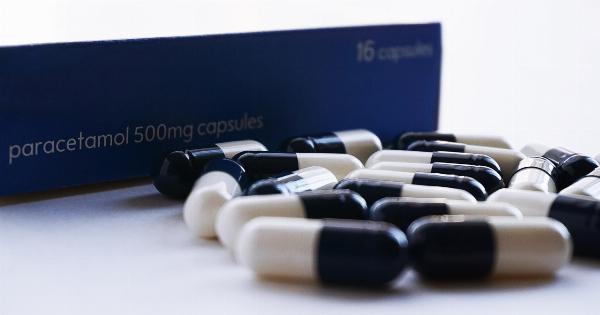Vitamins are essential micronutrients that play a crucial role in our overall health and well-being. They are responsible for maintaining various bodily functions, promoting healthy skin, boosting the immune system, and preventing various diseases.
While a balanced diet typically provides us with the necessary vitamins, deficiencies can occur due to various factors such as poor dietary choices, certain health conditions, or medication side effects.
Understanding the Importance of Vitamins for Your Face
When it comes to maintaining healthy skin, vitamins are particularly important. They help in regulating collagen production, preventing premature aging, reducing hyperpigmentation, and promoting a radiant complexion.
While deficiencies in vitamins can affect the entire body, they often become apparent through specific signs and symptoms on the face. By recognizing these indicators, you can identify potential vitamin deficiencies and take appropriate measures to address them.
Common Types of Vitamin Deficiencies and Their Facial Signs
1. Vitamin C Deficiency: Lack of vitamin C can lead to a weakened immune system, slow wound healing, and scurvy. On the face, you may notice dry, rough, and scaly skin, as well as frequent bruising and slow-healing acne scars. 2.
Vitamin D Deficiency: Insufficient vitamin D levels can contribute to bone and muscle weakness, immune system impairment, and depression. Facial signs of vitamin D deficiency typically include excessively dry skin, dark circles under the eyes, and acne breakouts. 3.
Vitamin E Deficiency: Inadequate vitamin E intake can result in muscle weakness, vision problems, and impaired immune function. On the face, it can manifest as dry and flaky skin, the appearance of fine lines and wrinkles, and increased sensitivity to the sun. 4.
Vitamin A Deficiency: Vitamin A deficiency can cause night blindness, dry eyes, weakened immune system, and increased susceptibility to infections. Facial signs often include rough and dry skin, acne breakouts, pigmentation changes, and a dull complexion. 5. Vitamin B12 Deficiency: Insufficient vitamin B12 can lead to anemia, fatigue, memory problems, and nerve damage.
On the face, it may present as pale or jaundiced skin, dark circles around the eyes, and frequent breakouts along the chin and jawline. 6. Vitamin K Deficiency: Inadequate vitamin K levels can impact blood clotting, bone health, and cardiovascular health. Facial signs include bruising easily, dark circles under the eyes, and a pale complexion.
Consulting a Healthcare Professional
While facial signs can provide valuable clues about potential vitamin deficiencies, it’s important to note that they aren’t definitive diagnostic tools.
Many other factors can contribute to these symptoms, and a healthcare professional should always be consulted for an accurate diagnosis. They can conduct blood tests to determine your vitamin levels and recommend appropriate dietary changes, supplements, or other treatments to address any deficiencies.
Preventing and Addressing Vitamin Deficiencies
Maintaining a balanced diet rich in fresh fruits, vegetables, whole grains, lean proteins, and healthy fats is essential for preventing vitamin deficiencies. However, in certain cases, dietary changes may not be sufficient to address the deficiency.
In such situations, healthcare professionals may recommend vitamin supplements to help meet the recommended daily intake.
Additionally, regularly monitoring your facial skin for any changes or abnormalities can aid in early detection of potential deficiencies.
Taking note of any sudden changes and discussing them with a healthcare professional can help ensure prompt intervention and appropriate treatment.
Conclusion
Our face often reflects our overall health, and by paying attention to the signs it presents, we can gain insights into potential vitamin deficiencies.
While facial signs can be indicative, it’s important to remember that a healthcare professional should be consulted for an accurate diagnosis. They can provide expert advice and guide you in maintaining a healthy lifestyle to prevent and address any deficiencies.




























